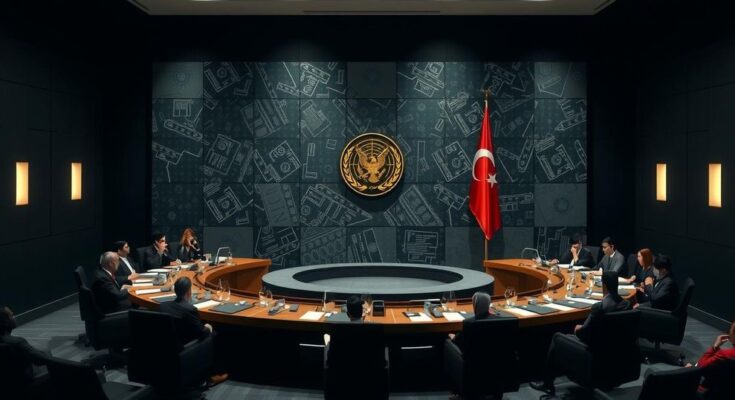The IMF urges the DRC to streamline financial management by establishing a Treasury Single Account as a condition to secure $2.87 billion in new funding over three years. This consolidation aims to enhance transparency and fiscal management, requiring the DRC to undertake significant tax reforms alongside the TSA implementation. The support framework objects to improving domestic revenue mobilization and increasing investments in critical sectors.
The International Monetary Fund (IMF) has proposed that the Democratic Republic of Congo (DRC) consolidate its thousands of government-related accounts into a singular Treasury Single Account (TSA) to enhance transparency and streamline resource management. This recommendation is part of a new financing agreement that will allocate nearly $2.87 billion to the DRC over the next three years. The agreement includes $1.77 billion disbursed through the IMF’s Extended Credit Facility (ECF) and an unprecedented $1.1 billion from the Resilience and Sustainability Facility (RSF). This financing is contingent upon the DRC’s commitment to expedite the development of the TSA and to implement significant tax reforms. The implementation of the TSA, mandated since 2019, has been met with delays from Kinshasa. Currently, there exist a staggering 3,625 government-related accounts, which is problematic for fiscal management. IMF mission chief Calixte Ahokpossi emphasized the need for strict adherence to public expenditure protocols and the urgency of operationalizing the TSA, which is expected to enhance budget credibility and improve tax policy. In concert with the establishment of the TSA, the IMF is advocating for decentralization of spending authorization to improve the adaptability of state expenditure to economic variations, fostering investment, and enhancing social spending. Furthermore, there is a call for the DRC to bolster domestic revenue generation through measures such as the standardization of VAT billing, cessation of inefficient tax exemptions, curbing tax evasion, and combating customs fraud. These reforms echo requests made to other nations in the region, as the IMF has been persistent in promoting improved fiscal practices across various jurisdictions. The new financial package awaits approval from the IMF’s executive board and aims to stabilize the DRC by addressing the cost of living crises and enhancing infrastructure and agricultural investments. The urgency of these reforms is underscored by their connection to broader regional stability, especially given the challenges the DRC faces in its eastern regions.
The Democratic Republic of Congo has faced persistent economic challenges, compounded by widespread government inefficiencies and fiscal mismanagement. The IMF has long advised the establishment of a Treasury Single Account to consolidate numerous government accounts, which proliferate financial opacity and hinder efficient revenue management. As part of larger economic stabilization efforts, the IMF seeks to provide substantial financial aid contingent upon significant reforms that target transparency and revenue generation. This context highlights the importance of both international monetary assistance and the necessity for robust domestic reforms in achieving national stability and growth.
In conclusion, the IMF’s insistence on the establishment of a Treasury Single Account and corresponding tax reforms in the DRC reflects a broader initiative aimed at enhancing economic governance and fiscal transparency. The proposed funding package serves as an impetus for the DRC to adopt crucial structural changes that would not only stabilize its economy but also lay the groundwork for sustainable growth. Both the international community and the Congolese government must prioritize these reforms to foster a more resilient economic future.
Original Source: www.theeastafrican.co.ke




